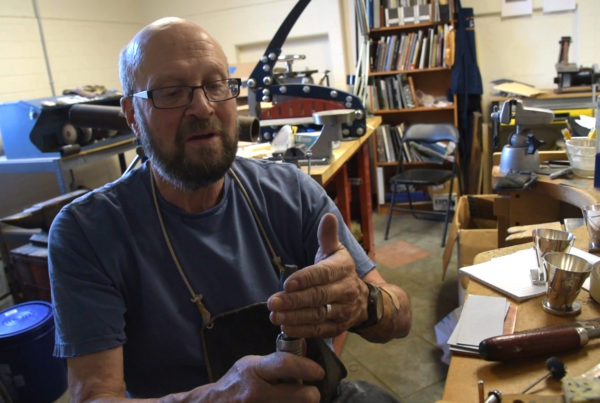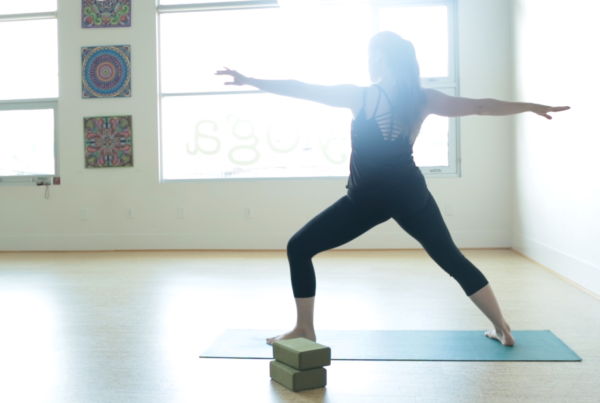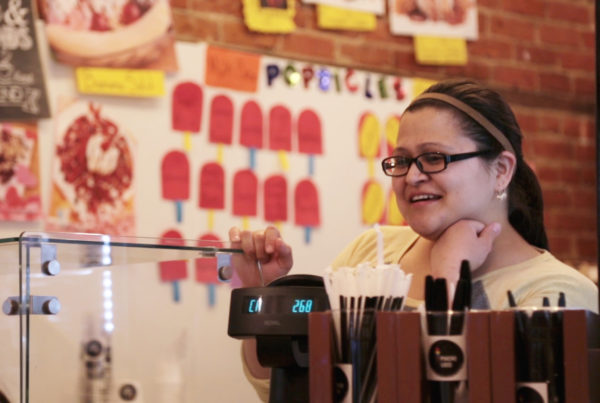If you’re older than 20, chances are you know where you were on September 11, 2001. This date is in our common consciousness as Americans. No matter where you were on that day, you share a bond with the millions of others who experienced similar confusion, fear and grief.
Every year we, as a nation, honor and remember this day. A day that shook us to our core. A day where so many lives were lost. A day that started a war. A day that we will never forget.
In many ways, September 11th brought us together. Communities supported each other in unity. We were all Americans on that day — not tied by policy or race or economic status. Our connection was strong.
But in truth, we all did not have the same experience that day.
Today, we invite you into the story of Jeremy Kumin. Sixteen years ago, he was living in Brooklyn. But the morning of September 11, he was visiting his family in the second place he called home — Durham.
He’d been asleep when his mom came into his room. Jeremy’s dad was on the phone, telling him to turn on the news. Telling him that he’d miss his flight to NYC scheduled for that afternoon.
Jeremy and his mom turned on the news just in time to see the second plane hit the south tower. Events were unfolding live as Jeremy’s mind teeter-tottered between the implications this had for himself, for his friends and coworkers in NYC, and for the country as a whole.
Friends and family started calling to make sure Jeremy was okay. He was more than safe, with nearly 500 miles between himself and the burning buildings. But he was not okay. He felt disconnected. All of his friends and neighbors were experiencing this horror right outside their windows. He was in Durham. And people kept asking him questions, thinking that he knew more because of his connection to NYC.
“I’m sure a lot of people in Durham were related — by business, by family ties — to the terror of it. But I don’t know if that terror was felt that much firsthand in Durham. It was just outside the radius of safety. It was much more of a slow burn.”
“But they knew in their gut I think that it couldn’t go back to being the same. That it was one of those continental divide moments. Before and after were inseparable.”
Jeremy didn’t know what think or how to feel. He wasn’t able to share the experience with his friends, or to respond if they needed help.
“Not being there I felt pulled apart, or a level of tautness between me and my community, because I wasn’t with [them] and I worried about them, and it wasn’t easy to get in touch with a lot of them.”
But there was also the tug that “I’m glad I’m safe and I’m glad my parents, my other family, isn’t worried about me. But all those people I might be able to support…”
Back in Brooklyn
Jeremy took a train back to Brooklyn the Saturday after the attacks. He remembers the cab drive passing by Union Square where people were taping up signs of missing loved ones. The thick coat of dust and debris that covered… everything. The dust was accompanied by a burnt smell that lingered for months.
“This fine dust on everything that was kind of gross and fraught with a whole kind of emotion – beyond just i want to be clean about it – no. This was signifying-something-dust. It has a whole other layer of meaning to it.”
Slowly, he said, life began to move forward again. At first, he felt disconnected by his lack of grief. He went into “survival mode,” and had to keep working, keep moving, and get back to a routine.
“The ground wasn’t steady under your feet anymore. Psychologically, economically. You didn’t have the same assurances that life will go on as it always does because that was such a fundamental ripping of the carpet from under our feet.”
A few months later, he was stopped in his tracks. He recognized someone on the photo memorial wall at his workplace. A security guard, who also worked as a first responder, lost his life on September 11th. Jeremy hadn’t realized that he’d lost his coworker. He missed the funeral. It hit him harder than he expected.
He remembers seeing memorials along sidewalks and pathways.
He remembers what the towers symbolized to the city. Like due North, if you could see the towers you knew where you were.
Jeremy also remembers how New Yorkers responded following September 11th. Normally, NYC was a place where you’d push through a crowd of people and try not to make eye contact. You had places to be, and they had places to be. Durham had always been the place where he received pleasantries and “excuse me’s” and “good mornings.”
After 9/11, those walls started to come down.
“There was so much emotionally raw time for people, that they were in grief or they were in shock, they were just trying to cope, that a lot of that guard came down and you just saw right into people’s souls sometimes.”
Jeremy’s experience helped connect him to the people in his city. It helped him appreciate things that he’d taken for granted. It helped him to see his surroundings more clearly.
That’s what we try to do with story.
This project was a group effort that took all of the StoryDriven team to pull off in a short amount of time. Elliot Blumberg took lead on the video with support from Chelsey, Chrislyn, Nathan and Rebecca.





